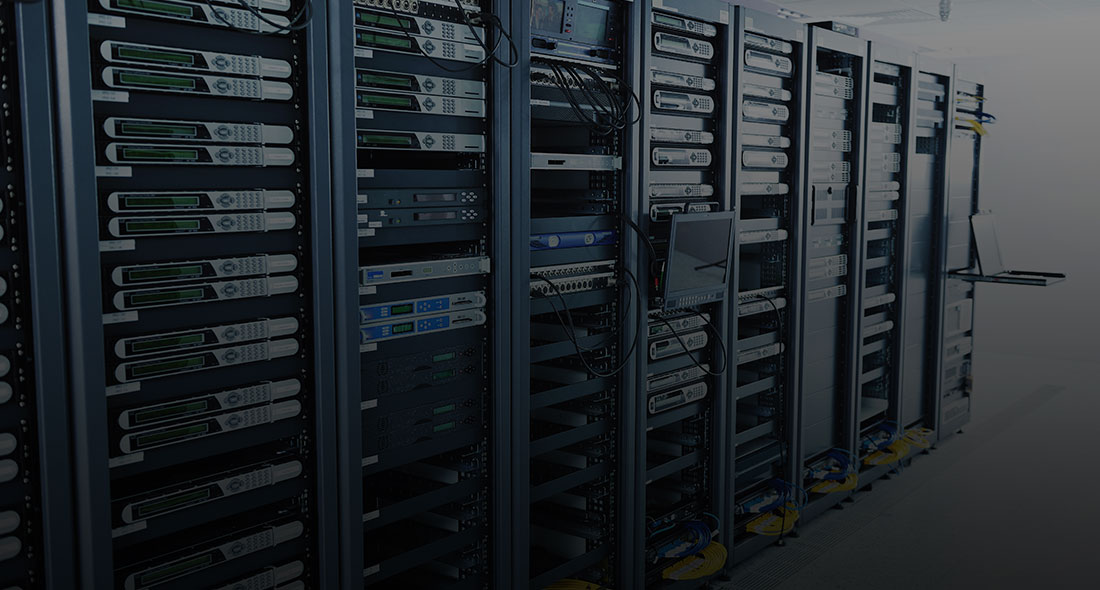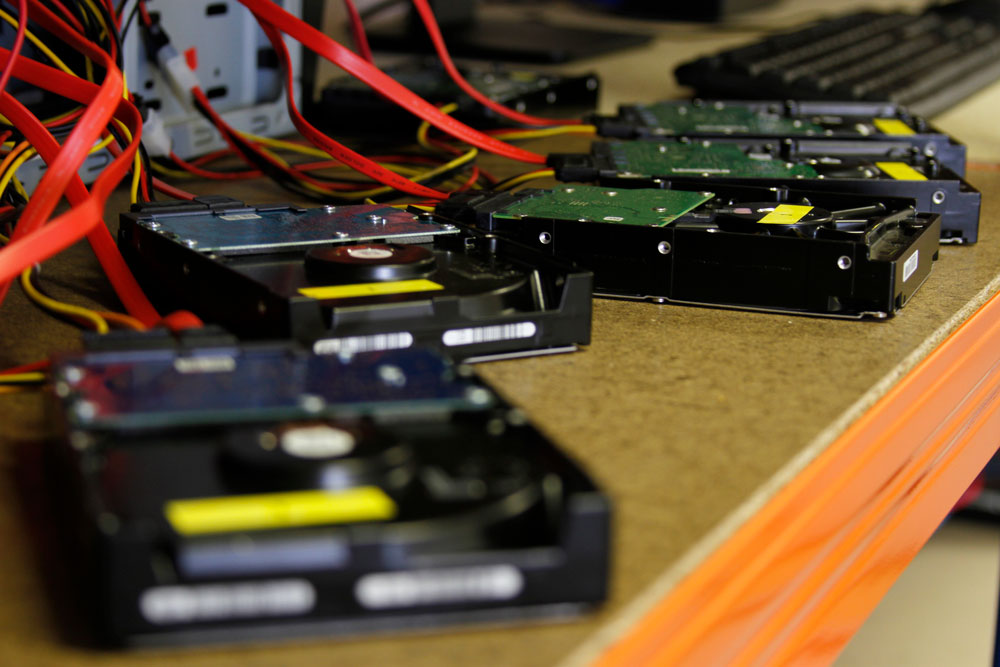Start Your Recovery Now (Click Here)

Speak to a Specialist
All of our RAID Data Recovery services start with your free telephone consultation so call now on: 0800 999 3282 Alternatively fill in our priority contact request form and we will assign one of our best suited server/RAID specialists to call you ASAP!
RAID Recovery Process
The most vital aspect of any data recovery – whether it be from a single hard disk drive, failed RAID 5 server, or even a virtualised node – is acting quickly and seeking professional assistance before attempting any DIY solutions. Our experienced team will guide you through every step with complete transparency… more

View our Resource Section
As specialist RAID recovery engineers, we have seen a lot of varied recovery cases. We make sure our information is up to date and have a great amount of valuable knowledge that may help with your recovery. Browse our site, Frequently Asked Questions, and technical guides for more information.
Who Are We?
R3 Data Recovery is a leading UK data recovery service specialising in the recovery of lost data from failed RAID arrays, Server arrays and NAS devices. Our experienced, United Kingdom-wide Response team is available 24 hours a day, around the clock, for the purpose of emergency data recovery of critical systems.
The Security House lab is central to the successful story of R3. It was first developed in 2007 as the UK’s first high-capacity data recovery operation. R3 are one of the UK’s leading data recovery labs providing services through IT Support Companies, PC Shops, our partner network of data recovery and disaster recovery managers, and direct to home users, self-employed professionals, and students.
We serve clients across the United Kingdom with locations in London, Birmingham, Bristol, Glasgow, Leeds, Liverpool, Newcastle, Northampton, Sheffield, and Southampton – ensuring you’re never far from expert assistance.
What We Do
In recent data loss situations, R3 Data Recovery has recovered data from many failed server systems and RAID arrays where the unimaginable has happened and the IT department’s worst fears have been realised. Some of those scenarios are listed below:
- Multiple hard disk failure on a RAID 5 array due to hardware faults or power surges
- Accidentally initialised disk members and even entire arrays
- RAID systems that have been rebuilt and failed to boot following completion
- Deleted files and folders requiring urgent file recovery
- Failed member of a RAID 0 array
- Corrupt SQL and Microsoft Exchange Server databases
- 3× failed hard disk drives on a RAID 6 system
- Re-initialised NAS (Network-Attached Storage) file servers including QNAP, Synology, Buffalo, and NetApp devices
- Ransomware and malware attacks on encrypted systems
- Water damaged drives and devices
- DVR and surveillance system failures
- Hyper-V, VMware, and XenServer virtual machine recovery
- Cloud storage synchronisation failures and corruption
In the case of failed hard drives that require attention, our ISO 3 (greater than class 100) certified Cleanroom labs are situated around the country, so you are never far away from a full recovery of your data.
Why should a service of RAID Data Recovery exist at all?
No server or RAID (Redundant Array of Inexpensive Disks) system is entirely resistant to failure—hardware and software components can fail unexpectedly. Whilst it is true that most RAID levels provide good data redundancy against failure, allowing for one failed disk (as in RAID 5 arrays) or two failed disks (as in RAID 6 arrays), the fact remains that there is absolutely no guarantee that irregularities in the power supply, sudden knocks or impacts, human error, or even natural disasters will not lead to the loss of data from what was thought to be a secure system.
Common risks include:
- RAID Controller failures (including Adaptec, Dell, HP, IBM, and EMC controllers)
- Software RAID corruption in both Windows and Linux environments
- Single disk failures that cascade into multiple drive failures
- Partition table corruption or accidental partition deletion
- Firmware issues requiring proprietary tools to resolve
- Human errors during RAID configuration or rebuild attempts
Data recovery services and dedicated data recovery personnel must exist as a fallback for when the worst does actually happen! R3 Data Recovery exists for that very reason—we specialise in RAID Data Recovery, server recovery, and offer emergency service options to ensure that you are back up and running, with all of your data intact. In most cases, other than minimal downtime, you would not be aware that the data had been lost.
Our technology and expertise mean we can recover data from virtually any RAID storage system, providing complete peace of mind and excellent customer experience throughout the process.
RAID Data Recovery – Regardless of the File System
R3 offer recovery of all RAID Arrays and File Server systems regardless of the configuration, the nature of the file system, or the operating system that was used to create the data.
- NTFS RAID (Windows Server and workstations)
- HFS and HFS+ (Apple RAID and Macintosh systems)
- Ext2, Ext3, Ext4 (Linux and Linux RAID derivatives)
- JFS RAID (Journaling file system)
- NWFS and NSS (Novell RAID)
- UFS (UNIX RAID)
- ZFS RAID (SUN and modern Linux)
- XFS (High-performance Linux file system)
- And all others
Our current research indicates that there are no file systems we are not able to support. Whether your documents are stored on a Windows server, Linux Database system, or macOS environment, we have the tools and expertise to help.
System Support
R3’s RAID Recovery support includes:
- All versions of Microsoft Windows and Windows Server
- All versions of Enterprise Linux, Unix, and POSIX-based systems
- Mac OS systems, from Mac OS X Server to XSAN and other Mac-formatted arrays
- NAS boxes (normally with a Linux Kernel and file system) from manufacturers including QNAP, Synology, Buffalo, NetApp, and others
- NAS boxes with an embedded Windows OS
- VMware ESXi and vSphere environments
- Microsoft Hyper-V virtualisation platforms
- Citrix XenServer deployments
- Dell, HP, and IBM enterprise storage systems
- EMC and NetApp SAN configurations
Powered by R3 — When you see the “powered by R3” logo, you are guaranteed and reassured that your device and data are in safe hands. All the resource and expertise of the UK’s best data recovery lab will be used to give you the best chance of receiving all your data back. So look for the R3 logo.
Powered by R3 - When you see the “powered by R3” logo you are guaranteed and reassured that your device and data are in the safest of hands. All the resource and expertise of the UK’s best data recovery lab will be used to give you the best chance of receiving all your data back. So look for the R3 logo.
RAID Arrays and Levels
RAID arrays form by far the most popular modern method of storing data in business environments, from small office NAS devices to enterprise-level data storage device configurations.
Originally designed with two factors in mind—more reliable data storage (through redundancy, which does not apply to RAID 0 or spanned arrays) and an increase in throughput performance, i.e. far quicker operation than a single drive.
Key RAID concepts include:
- Striping – Distributing data across multiple drives for improved performance
- Mirroring – Creating exact copies of data for fault tolerance
- Data redundancy – Protecting against single or multiple drive failures
- Fault tolerance – Ensuring system reliability even when components fail
There are dozens of different RAID configurations, known as levels. The type of application, the storage requirement, scalability, expandability, and performance are all factors which will dictate the best RAID level to implement. RAID 30 for high-speed video editing, RAID 1 for metadata and log storage, and RAID 5 (possibly the most common level configured) for all-round use.
RAID Levels That R3 Data Recovery can Help You To Recover
Advanced and Nested Levels:
- Double parity / RAID-DP
- RAID 5E, RAID 5EE, and RAID 6E
- Intel Matrix RAID
- Linux MD RAID 10
- RAID 1E
- RAID-Z
- RAID 0+1
- RAID 1+0
- RAID 100 (RAID 10+0)
- RAID 50 (RAID 5+0)
- RAID 53
- RAID 60 (RAID 6+0)
Proprietary Systems:
- Drive Extender
- BeyondRAID
- unRAID
- CRYPTO softraid
- Hybrid storage systems
Looking for a RAID Recovery Expert?
Call for your FREE consultation
Your Questions Answered
We try and answer your most important questions straight away so you’re left with the full picture of exactly what we do and how we do it.
Can you recover our data?
The likelihood is yes, we probably can. For RAID systems our current success rate is above 95% for a full recovery, provided the RAID has not been subject to numerous manual rebuilds or recovery attempts by the user or IT admin.
For single hard drive failures, our success rate varies depending on the type of failure, as well as the manufacturer of the drive (certain drives have known issues, which can reduce the chance of successful recovery). Generally, we enjoy success rates above 98% for single drives.
How much will it cost?
Roughly, single hard drives cost from £375 plus VAT. The price will rise depending on the capacity of the drive, and the nature of the failure.
For RAID systems, pricing is worked out on a per-job basis, as there are far too many variables that prevent publishing of pricing structures.
Please contact us for more information.
Will you charge us for diagnosis?
No – please contact us for further details.
How do we send the media over to you?
If you are local to us, you may make an appointment to deliver your device. Alternatively, you can use any reliable courier service. If you have a large and fragile storage device, such as a complete server, we recommend using a dedicated, same-day courier.
What should we do if our data is lost?
The chances are you have not actually lost your data – it has merely become inaccessible. The services of a data recovery professional will usually be able to restore access to the lost data. It is critical you do not attempt DIY data recovery, as this all too often results in catastrophe.
Please contact us for more information.
How do we prevent data loss happening?
The only sure-fire way to prevent data loss is to have a comprehensive backup routine in place. This backup system needs to be tested regularly; we often encounter users who have been backing up religiously – but the backups have all failed.
Even your backup system should be backed up, and the backup taken off site. Learn not to trust any storage medium on its own – all storage systems can fail.
How do we prevent more data loss failure?
If a single hard drive fails and is making any odd noises, it’s important to power the drive off, and leave it off until you can get it to a data recovery professional. Further attempts to read the drive or copy off data will almost certainly cause further damage to the drive, and may well render it completely unrecoverable. This can occur if there is a failure of the read/write heads; allowing the drive to continue spinning could result in the damaged heads scratching the platters, leaving absolutely no chance of recovery.
With RAID, there are more options. Many causes of failure are the result of a crashed RAID rebuild (following swapping out a failed drive with a healthy one). At this point, you need professional assistance. A power surge can leave more than one drive damaged – enough to bring down the RAID. This needs immediate professional attention.


